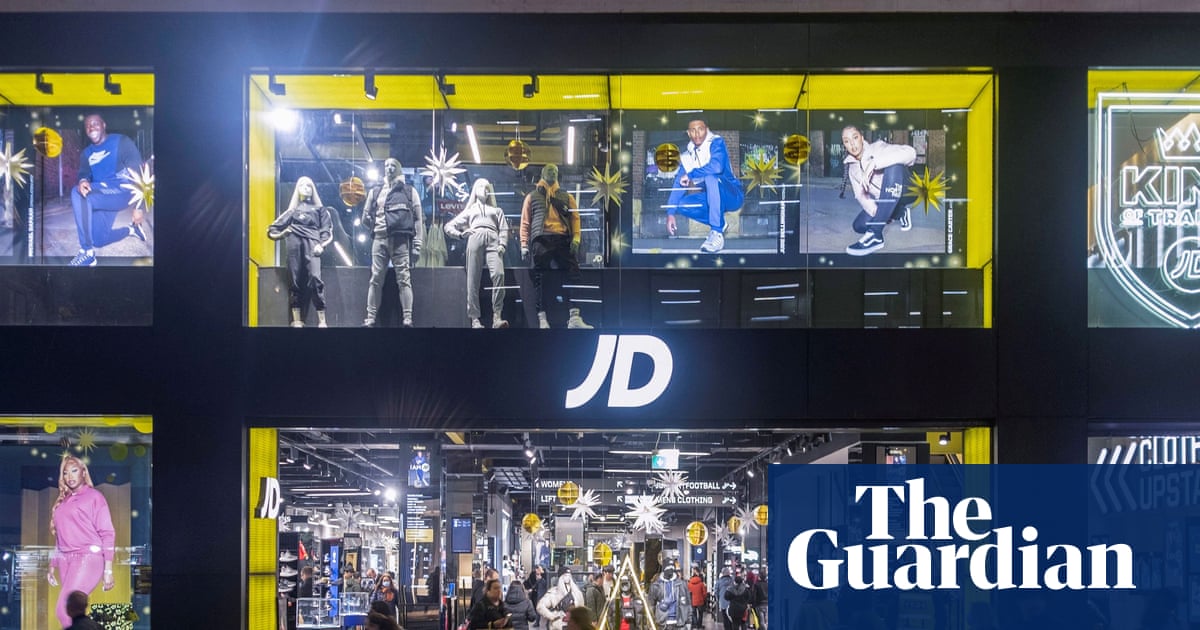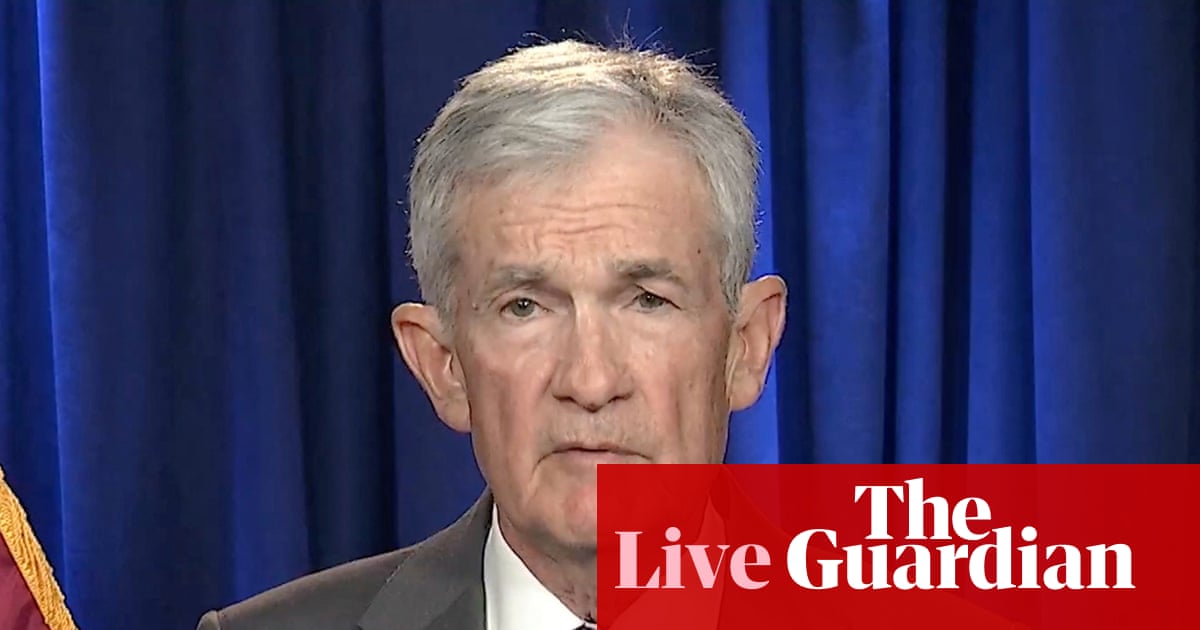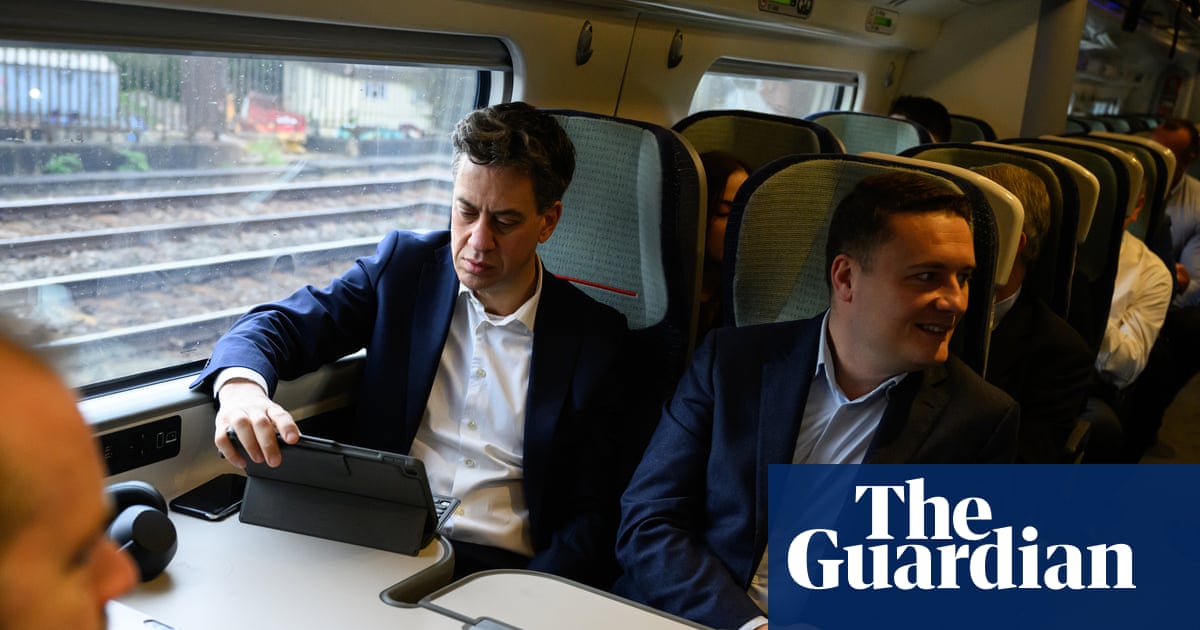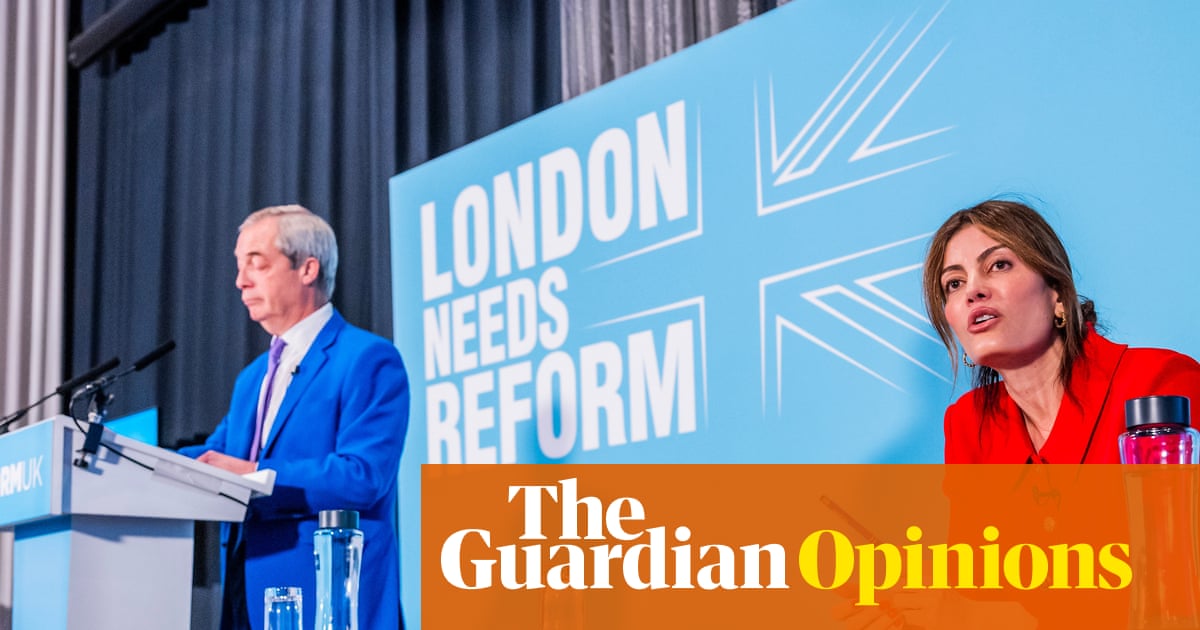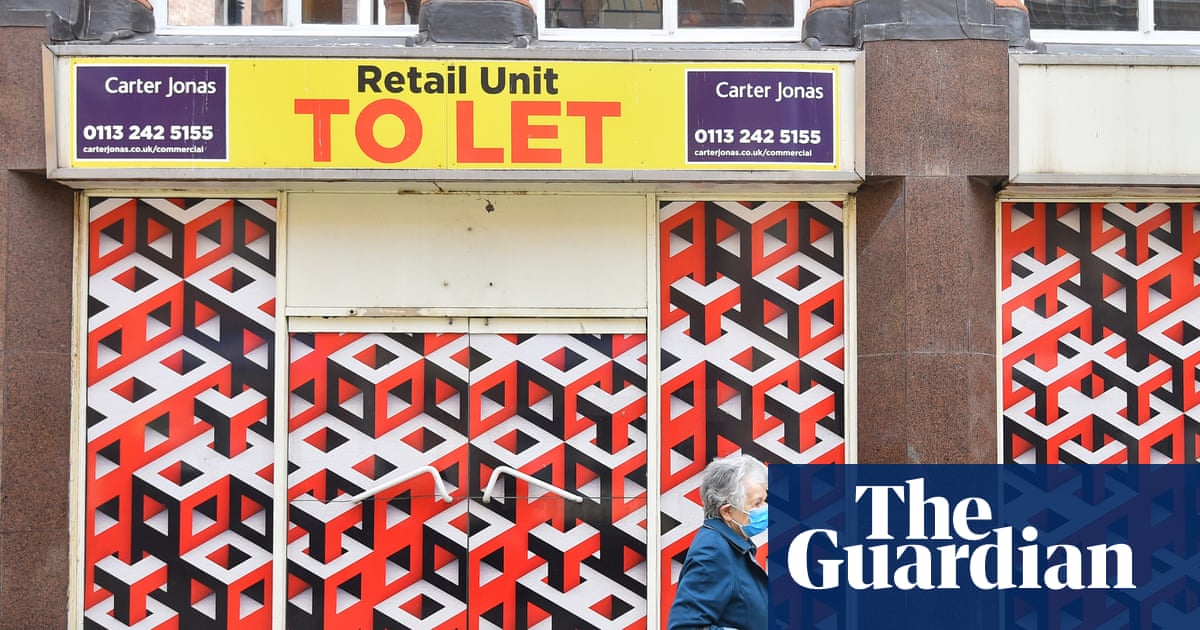Reeves: Second Gatwick runway will mean cheaper holidays
Chancellor Rachel Reeves has said a second runway at Gatwick will mean lower costs for a family holiday, and a greater choice of destination, as well as more good jobs.
Speaking at the airport, she said:
“Today, this Government are backing a second runway here at Gatwick.
“That’s in addition to our commitments to a third runway at Heathrow, small modular reactors and a new nuclear power station in Suffolk, backing energy projects and transport projects right round the country.
“This extra runway at Gatwick will mean that people going on holiday will have a greater choice of destinations. It will mean lower costs for a family holiday.
“And it will also mean more good jobs paying decent wages through this injection of cash into our economy.
“We said as a Government we will back the builders and not the blockers, and that is exactly what we are doing with this announcement.”
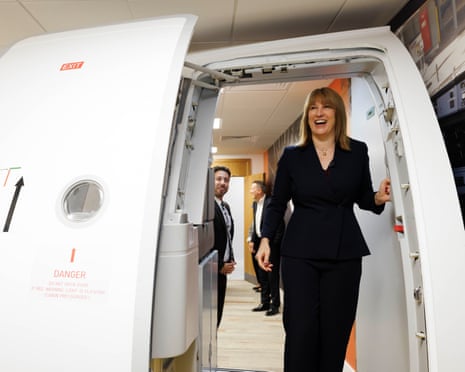
Key events Show key events only Please turn on JavaScript to use this feature
Alun Cornish, managing director ramp and gateways at FedEx Europe, hopes that expandng Gatwick will allow more goods travel to and from the UK.
Cornish says:
“We welcome the Transport Secretary’s support for Gatwick’s expansion, we’ve seen firsthand how vital air cargo is to Britain’s growth - helping businesses in the South East expand overseas and tap into global markets. Air connectivity isn’t just a convenience; it’s the backbone of international trade and economic strength.
We support appropriate airport expansion to deliver economic growth to the UK, but to unlock its full potential, cargo growth must remain a priority alongside passenger flights. Air freight is critical to modern supply chains and Britain’s global standing. Policymakers must act to ensure the UK remains a trading powerhouse. We look forward to what the future holds.”
Here’s a clip of Rachel Reeves explaining why the government has green lit a second runway at Gatwick:
Reeves: Second Gatwick runway will mean cheaper holidays
Chancellor Rachel Reeves has said a second runway at Gatwick will mean lower costs for a family holiday, and a greater choice of destination, as well as more good jobs.
Speaking at the airport, she said:
“Today, this Government are backing a second runway here at Gatwick.
“That’s in addition to our commitments to a third runway at Heathrow, small modular reactors and a new nuclear power station in Suffolk, backing energy projects and transport projects right round the country.
“This extra runway at Gatwick will mean that people going on holiday will have a greater choice of destinations. It will mean lower costs for a family holiday.
“And it will also mean more good jobs paying decent wages through this injection of cash into our economy.
“We said as a Government we will back the builders and not the blockers, and that is exactly what we are doing with this announcement.”

The cyber attack which hit European airports last weekend still appears to be causing problems.
Aviation analytics firm Cirium report that, at 9.30am BST today, there were a string of cancellations at Europe’s major airports.
They say:
-
Today, 22 September 2025 has seen 36 departures cancelled so far across Heathrow (LHR), Berlin (BER) and Brussels (BRU).
-
There have also been 25 arrivals cancelled so far, across the three airports.
-
In total, there are scheduled to be 682 departures from London Heathrow, 270 from Brussels and 290 from Berlin.
Those cancellation numbers are less bad than on Sunday, when 52 departures and 44 arrivals were cancelled across Heathrow, Berlin and Brussels.
Here’s another image showing Gatwick’s plan to relocate its emergency runway 12 metres to the north, to allow it to function as a second runway:
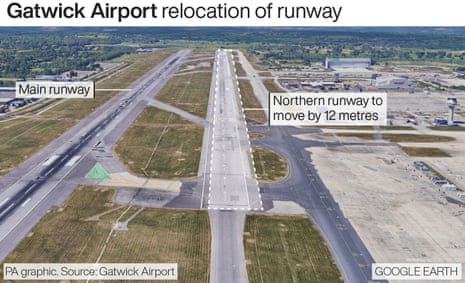
HSBC has said the increase in visa costs for foreign employees in the US is “manageable”.
That’s because the lender has fewer workers there than some of its peers or major technology companies.
Michael Roberts, who heads the British lender’s corporate and institutional banking division, told Bloomberg Television today:
“We don’t have a huge amount of visa holders. For us, it is manageable.”
Roberts added it may be a “much bigger issue” for other financial services companies and tech firms.
The White House clarified over the weekend that the order applied only to new H-1B applicants and not holders of existing visas or those seeking renewals.
Before that clarification, several companies advised employees on H-1B visas to stay put or return to the US before 21 September.
The Financial Times reports that this led to “chaos at airports on Saturday as workers hurried to return to the US”.
Shares in some Indian IT firms fell today, in response to the H-1B visa fee hike.
Infosys’s shares are down by 3.1%, while Tata Consulting Services has lost 3.2%.
Trump's $100,000 H-1B fee 'will hurt US growth'
Economists are warning that Donald Trump’s decision to hike the cost of skilled worker visas will hurt the US economy.
Imposing a $100,000 annual fee on new H-1B visa applications is expected to dampen economic growth, and pose particular problems for US technology companies who are major users of the scheme to attract foreign talent.
Atakan Bakiskan, economist at Berenberg bank, has dubbed the move an example of the Trump administration’s “anti-growth policymaking”.
Bakiskan says:
Deportation efforts, attempts to strip work permits from existing employees, and a hostile environment for foreign workers have already caused labour force growth in the US to nearly flatline. With the new H1B policy, the labour force is more likely to shrink than expand going forward.
The future of economic growth now depends almost exclusively on productivity gains. However, by making it very expensive for companies to attract foreign talent, and by forcing some international students to leave the country after graduation, the brain drain will weigh heavily on productivity.
Berenberg recently lowered their estimate for US trend growth from 2.0% at the start of the year to 1.5%. Bakiskan warns that unless Trump relents, that 1.5% forecast “may soon look optimistic”, adding:
Taken together, the erosion of trust in institutions, a loss of human capital, tariffs, chronic uncertainty, and unsustainable fiscal policies can raise the tail risk of a financial crisis in the US. In the long run, they may set a path for an even weaker dollar and higher long-term yields.
Bakiskan adds that the US economy can still grow with no job creation. But it will grow more slowly, and with a higher risk of stagnation or recession.
India, which has been the largest beneficiary of H-1B visas, has criticised the White House’s move:
Kathleen Brooks, research director at XTB, suggests Trump’s plan to raise the H-1B visa application fee to $100,000 could hit Amazon in particular, explaining:
The new policy is now in effect, and it may impact the mega cap tech stocks who employ thousands of people on H-1B visas. Amazon has the highest number, closely followed by Microsoft, Meta, Apple and Google.
Although these companies have the money to afford the vias, other sectors who also rely on H-1B visas may struggle with future recruitment, for example the health care and education sectors.
Rachel Curley, deputy general secretary of Prospect union, is hopeful that expanding Gatwick with a second runway will create and maintain jobs, saying:
“Expanding aircraft capacity at Gatwick has the potential to support good unionised jobs in the aviation sector, as well as make sure that UK economy has the connectivity it needs to our trading partners across Europe and further afield.
“Lack of airport capacity in the southeast of England leads to a lack of resilience for our transport system, something expansion can and must address.
“More infrastructure capacity must be backed up by employers, governments and unions working together to deliver the skilled workers that will be critical too.”
The British Chambers of Commerce has welcomed the transport secretary’s decision to approve plans for a second runway at London Gatwick Airport
Shevaun Haviland, director general of the BCC, points to the growth potential of the project:
“The go-ahead for London Gatwick’s Northern Runway Project creates a clear flight path for economic growth.
“The Gatwick project is a shovel-ready scheme to transform existing infrastructure and boost connectivity. Aviation is a critical growth sector, with firms in the region and across the UK directly benefiting from this project, through more jobs and supply chain opportunities.
“Gatwick’s Northern Runway project demonstrates the private sector’s commitment to investing in the UK’s long-term economic future.”
Elsewhere in the markets, shares in Porsche have tumbled by 6% after it dialled back plans for its electric vehicle rollout.
Porsche blamed weaker demand, pressure in key market China and higher U.S. tariffs on Friday night when it cut its profit outlook, and said the launch of some all-electric models will be delayed.
A wide-ranging product overhaul will delays some EV models in favour of hybrids and combustion engine cars.
Volkswagen, which owns a majority shareholding in Porsche, said it would take a €5.1bn hit from the plan. VW’s shares are down 5%.
Airline shares fall after cyber-attack
The Gatwick runway decision isn’t giving airline stocks an obvious lift this morning.
British Airways’ parent company IAG (-1.5%) and easyJet (-1.5%) are among the top fallers on the FTSE 100 share index in early trading.
The airline sector may be out of favour with investors after a cyber-attack hit check-in desk software over the weekend, leading to some delays.
Victoria Scholar, head of investment at interactive investor, says:
“The FTSE 100 has opened flat with airlines near the bottom of the index including EasyJet and BA’s parent company IAG after a cyber attack disrupted services at European airports this weekend.”
Map: Gatwick's second runway
Opposition group Communities Against Gatwick Noise Emissions (CAGNE) said they plan to bring a judicial review of the decision “funded by residents and environmental bodies”.
The Gatwick Area Conservation Campaign (GACC) has also criticised the decision to expand Gatwick with a second runway.
Peter Barclay, chair of GACC, said (via Sussex World):
“This is a profoundly irresponsible decision that flies in the face of climate science, environmental evidence, and the interests of local communities. Expanding Gatwick Airport at a time when the UK is legally bound to reduce emissions is a betrayal of future generations.
“This flawed decision prioritises short-term commercial interests over the long-term environmental and social costs. It will worsen noise pollution, traffic congestion, and carbon emissions — all in an area already under pressure.”
GACC are fundraising for a legal challenge to the decision.
Residents affected by more noise from the second runway will be able to ask Gatwick to cover the costs for triple-glazed windows, PA Media reports.
Homeowners, living directly beneath the new flight routes who choose to sell could have their stamp duty and reasonable moving costs paid, as well as estate agent fees of up to 1% of the purchase price.
"A second runway at Gatwick is a disaster"
Environmentalist have slammed the government’s decision to approve a second Gatwick runway.
Green party leader Zack Polanski has said:
“Signing off on a second runway at Gatwick is a disaster. It ignores basic climate science and risks undermining efforts to tackle the climate crisis. Labour keeps wheeling out the same nonsense about growth, but at what cost? What this really means is more pollution, more noise for local communities, and no real economic benefit.
Expanding Gatwick is a tired, 20th-century answer to a 21st-century crisis. Labour’s obsession with ‘growth at all costs’ is driving us deeper into a climate breakdown and social inequality crisis.”
Rosie Downes, head of campaigns at Friends of the Earth, argues that the economic case for the expansion is ‘massively overstated’:
“With emissions from aviation rising as climate extremes increasingly batter the planet with more intense floods, droughts and wildfires, it’s a struggle to see how the government can conclude expansion at Gatwick is a wise move.
“The Secretary of State says a second runway is a “no-brainer” for the economy, but the economic case for airport expansion is massively overstated. Any growth in air passengers leaving the country is likely to mean more UK tourists using their spending power overseas than anything we might gain from visitors.
Introduction: Reeves says Gatwick 2nd runway means investment and jobs
Good morning, and welcome to our rolling coverage of business, the financial markets and the world economy.
Chancellor of the Exchequer Rachel Reeves is declaring that the government’s promise to “kickstart the economy” is underway, after Gatwick Airport’s £2.2bn second runway plan was approved yesterday.
Transport secretary Heidi Alexander has approved a plan under which Gatwick will move its emergency runway 12 metres north, enabling it to be used for departures of narrow-bodied planes such as Airbus A320s and Boeing 737s.
Alexander cleared the plan after Gatwick offered noise mitigation measures, plus stept to ensure a proportion of passengers will travel to the airport via public transport
Gatwick has estimated that the ‘shovel ready’ project will add 14,000 jobs and as much as £1bn in extra economic activity each year.
Reeves is upbeat about the economic benefits of the plan – which has been criticised by environmental groups – saying:
“A second runway at Gatwick means thousands of more jobs and billions more in investment for the economy.
“We are backing the builders, not the blockers. By slashing red tape and transforming the planning system to get Britain building again we are investing in this country’s renewal and building an economy that works for working people.”
The chancellor will be desperate to promote pro-growth measures ahead of her budget in November, where she faces pressures to cut spending or raise taxes to avoid breaching her fiscal rules.
One government source suggested last night that flights could take off from the new full runway by 2029.
Alexander’s decision has received a nod of approval from the opposition Conservative Party.
The shadow transport secretary, Richard Holden, welcomed the decision to approve Gatwick’s second runway, saying:
“If done with sensible mitigations, it will be a vital step towards driving economic growth, improving connectivity, and strengthening Britain’s position on the global stage. But let’s be clear, this decision should have been made months ago.”
The agenda
-
1.30pm BST: Chicago Fed National Activity Index
-
3pm BST: European consumer confidence report

 3 months ago
86
3 months ago
86
